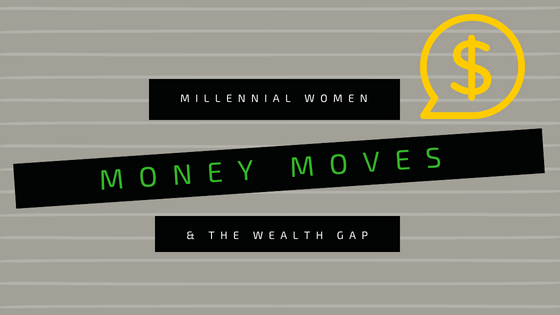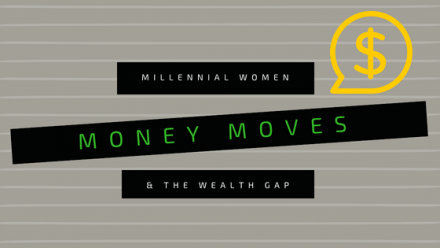Millennials and the Midterms


This is the sixth part of a year-long blog series that tackles the obstacles to wealth building that Millennial women face over their lifetimes. The goal is to unpack the forces that create the wealth gap for Millennial women and point to both practical advice and policy suggestions that can help create a more stable economic future for this generation of women.
In the wake of the 2018 midterm elections, a lot of attention has been paid to the record number of women who ran and won their elections as well as the role of Millennial voters. Now that the votes have been cast, let’s take a look at the folks who sit at this intersection: the Millennial women elected to Congress in 2018.
Out of the 102 women elected to the House of Representatives, 8 are Millennials (born between 1981-1996). Of those 8, 7 are Democrats and 1 is a Republican, and two were re-elected. Half are women of color. While they all share the title of “Millennial,” these women come from all parts of the country and bring with them a range of expertise and passions. This blog will focus on the 6 new members of this group:
- Ilhan Omar (D-Minnesota, 36) is the first Somali-American, Muslim legislator in the U.S. She is already making moves in D.C. by trying to change the 181-year-old rule stating that members of the House of Representatives cannot wear head coverings, which would force her to remove the hijab she wears for religious purposes.
- Alexandria Ocasio-Cortez (D-New York, 29) is a democratic socialist and the youngest woman ever elected to Congress. She is also probably the most visible face of this freshman class, due in part to the recent scrutiny she’s been under from conservatives who think someone with her working class roots should have less than $7,000 in savings and a shabbier wardrobe. If you haven’t seen one of her “fireside chats” where she makes soup in her Instant Pot, I’d highly recommend it.
- Lauren Underwood (D-Illinois, 32) is a registered nurse with a pre-existing heart condition who decided to run for office when her congressman-turned-political-opponent went back on his promise to protect those with pre-existing conditions. Underwood is both the first woman and first Black representative elected to her district.
- Abby Finkenauer (D-Iowa, 30) is another first-generation college student with more than $15,000 of student debt left to pay (according to her website). She comes from a working class family where her father was a Union Pipefitter Welder. Both of these experiences shape her platform, particularly when it comes to building union power and supporting higher education policies that make college more affordable.
- Haley Stevens (D-Michigan, 35) worked on President Obama’s 2009 auto industry rescue and used that experience to create the first online certification program for digital manufacturing—the first in the U.S.
- Katie Hill (D-California, 31) has never held public office and ran a campaign using zero corporate money. She lives on an animal rescue farm and has worked to help homelessness in her home state.
I examined each woman’s campaign website to see if they included any policy priorities that have the potential to close the wealth gap for Millennial women. I looked specifically for their stances on education, healthcare, the economy, and housing because many of the barriers to building wealth are related to these issues. Here’s what I found:
EDUCATIONAL ACCESS AND AFFORDABILITY
Both the cost of early learning and higher education shape income insecurity–working class families cannot afford the costs of early learning while recent graduates are burdened with loan debt that follows them into adulthood and prevents them for saving for housing, retirement, or their own children’s early learning. Wealth begets wealth and when you don’t have it, it’s a vicious cycle.
All of the congresswomen recognize the burden of student loan debt but have different ways of solving the problem. For example, Omar and Ocasio-Cortez are in favor of cancelling the current $1.4 trillion in student loan debt, while Underwood wants to expand Pell Grant funding to better serve low-income students. Support for creating universal Pre-K is another common thread, a step that would help even the playing field for all kids and set them on a path to success no matter what socioeconomic background they come from.
EXPANDING ACCESS TO AFFORDABLE, HIGH QUALITY HEALTH CARE COVERAGE
When it comes to the wealth gap for Millennial women, being able to afford healthcare without going into debt is a big piece of the puzzle. While the Affordable Care Act (ACA) has helped millions get health insurance, some people still struggle to afford the care they need because of a host of issues. Even with increased coverage rates (thanks to the ACA), a recent Health Affairs study found that some people are still going into debt because of medical bills, either because they pay their bills by credit card which they subsequently do not pay off or they decide to pay for a medical bill but then forgo paying other bills to make the medical payment. In such situations, their overdue bills end up in credit collections that then hurt their credit score, which then hinders their efforts to invest in wealth-building assets like a home or car.
All six of the Congresswomen support policies that would expand access to affordable, high quality health insurance coverage. Some of the women, Stevens and Underwood, specifically mention supporting policies to protect those with pre-existing conditions (which is a centerpiece of Underwood’s campaign since she, too, has a pre-existing condition). Additionally, some of the members, like Omar and Ocasio-Cortez, have also specifically highlighted the crucial need for insurance coverage of abortion, recognizing that such coverage is critical for women’s economic security.
A LIVING WAGE AND WORKERS’ RIGHTS
One of the major ways to build wealth is by securing a job that allows you to pay your bills and save money at the same time. This can be hard to do when you’re paid below a living wage. That’s why raising the minimum wage is one way policymakers can help women workers build wealth. Paid family leave and other supports are also important wealth-building tools because they prevent women from losing out on income (and retirement savings and future Social Security to boot) just because they want to start a family or have caregiving responsibilities. The U.S. is the only industrialized country without guaranteed paid family leave, and only 16 percent of workers in the U.S. have access to employer-provided paid family leave.
The need to pay workers a living wage is one of the biggest points of agreement between these congresswomen. Half of all candidates explicitly mentioned raising the minimum wage to $15 on their websites. Strengthening workers’ bargaining power was another common thread, but it is especially important to Finkenauer and Stevens who come from states where agriculture and the auto industries thrive. Stevens and Finkenauer also specifically call out the gender wage gap, which impacts the financial security of Millennial women in the long run (if you need a refresher, check this out).
HOUSING AS A HUMAN RIGHT
Home ownership is one of the best ways to build wealth, but it’s not easy these days, especially for Millennials who are balancing educational debt, healthcare costs, and low-wage work, which make saving up for a down payment difficult. Other factors, like getting married later in life and living in large cities where affordable housing is scarce, affect Millennial homeownership rates.
While not all of these congresswomen explicitly mention housing, the women who live in states where there are shortages in affordable housing (California, New York, and Minnesota) brought attention to some potential solutions. For example, in addition to passing a national renters’ bill of rights, Omar wants to fully fund the National Affordable Housing Trust Fund. New York native Ocasio-Cortez wants to expand the Low Income Housing Tax Credit (LIHTC), which provides tax incentives for developers to create more affordable housing. Hill goes even further, explaining on her website that these housing shortages disproportionately impact people of color, single-parent families, veterans, and survivors of domestic abuse. The message these women are sending is strong: housing is a human right.
While these congresswomen come to Washington to represent their entire districts, their platforms show an understanding of the issues shaping the lives of Millennials and they support policies that have the potential to close the wealth gap, especially for Millennial women. I, for one, am excited to see what this new wave of Millennial women can accomplish in the House, as they bring a new energy and vision to their work.




